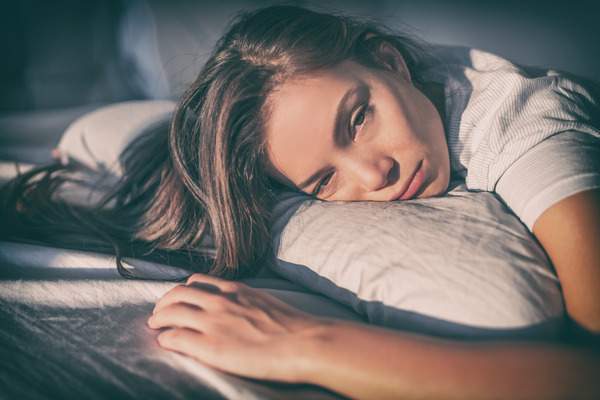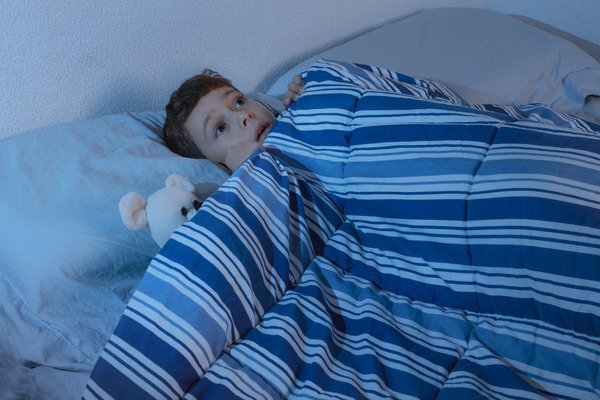Do you have trouble sleeping and counting sheep doesn’t work for you? Discover effective techniques to sleep once and for all and leave sleepless nights behind.
Sleeping is an essential activity for both physical and mental well-being. During the day our brain is exposed to wear and tear as a result of carrying out daily activities, so sleep plays a fundamental role, restoring the wear and tear produced during the day. Sleeping does not mean that our body stops working, on the contrary, multiple processes are carried out such as, for example, the regulation of our immune system, the consolidation of our memory, etc.
It is widely known that for correct daily functioning it is recommended to sleep between 7-8 hours for adults. However, many people experience difficulty To fall asleep or keep it overnight. In this sense, lack of sleep can have negative effects on our health, our mood and our cognitive performance. In this article, we will explain some effective strategies to help you To fall asleep and improve its quality.
Sleep techniques: what to do if you can’t sleep?
If you have come this far it is probably because you have been without power for a while. sleep well You may have tried different strategies, including sleeping pills, and they haven’t worked for you either. The reality is that sleep is a complex behavior that can be interfered with by multiple factors and non-pharmacological treatment is the only one that has demonstrated lasting effectiveness over time. There are different effective strategies to help you To fall asleep such as, for example, the following:
Sleep hygiene and stimulus control:
- Use the bed only to sleep: Use the bed only for sleep It may sound like very obvious advice. However, sometimes we tend to do other activities such as reading, arguing with our partner, thinking about the things we have to do, watching television, etc. Therefore, our brain associates bed with other activities that are far from resembling rest. In this sense, if we spend a long time without being able to sleep lying in bed, we will associate not being able to sleep with the bed. Therefore, the goal is to prevent this from happening to us. As? If after 10-15 minutes you cannot fall asleep, it is advisable to get up, go to another room and do a relaxing activity such as, for example, to meditate hear Relaxing music , etc. and when you feel sleepy go back to bed. If you go back to bed and can’t sleep again, do the above sequence again until you finally can. To fall asleep
- Create a suitable environment for sleep: Did you know that light is one of the main stimuli that influences our sleep? Light influences the activation or not of certain genes that influence our wanting to sleep and at the same time, these genes have an important role in the secretion of certain hormones such as, for example, melatonin. Melatonin is a hormone synthesized by our pineal gland and is characterized by being a light-sensitive hormone. The latter means that melatonin is inhibited by light and, conversely, when there is darkness it is secreted. Therefore, depending on the light, more or less melatonin will be secreted and, therefore, we will be more or less sleepy. In this way, it is important that before going to sleep you avoid using screens and try not to let in too much light from outside. It is also advisable to feel that the room we use to sleep is comfortable and that we feel comfortable in it.
- Watch what you consume before going to sleep: One of the keys to having good sleep hygiene is to take care of what we consume hours before going to sleep. Yes lately Do you have trouble falling asleep , taking care of this aspect is especially relevant. In this sense, it is recommended to avoid the consumption of foods with caffeine or have tea hours before going to sleep, as well as avoiding very large meals.
- Have a routine: Having a routine is essential to be able to fall asleep easily If we go to bed at different times every day, it is more difficult for our body to get used to it and for us to feel sleepy when we go to bed.
Sleep restriction:
It may be that thinking about the idea of restricting your sleep when precisely it’s hard for you to sleep It sounds a bit contradictory to you. However, it is a technique used for the treatment of insomnia Specifically, this technique aims to optimize the time spent in bed to end up achieving a restful sleep. It basically consists of adjusting the time spent in bed in order to gradually increase it. For example, if a person spends 8 hours in bed, but only sleeps 5, it is recommended that they only spend the 5 hours in bed, adjusting the hours to their circadian rhythm. As you feel a more restful sleep , the minutes spent in bed are increased, for example, 15 minutes. In this way, the time of restful sleep

Relaxation techniques:
- Diaphragmatic breathing: Breathing plays an important role in how we feel, in fact, when we are stressed we tend to hyperventilate which ends up making us agitated. Therefore, controlling your breathing can help you feel more relaxed and being able to fall asleep Specifically, diaphragmatic breathing is a breathing technique that allows it to be more complete and slow, which helps us feel calmer. This consists of inhaling by moving the abdomen inward and exhaling by moving it outward. This allows our ribcage and lungs to expand for deeper breathing.
- Progressive muscle relaxation: Muscle relaxation is a specific technique that mainly consists of identifying which muscles are tense and influencing them to relax them. It is called progressive since the different muscle groups relax progressively. During relaxation it is important to also control our breathing, specifically, using diaphragmatic breathing. The progressive muscle relaxation It consists of consciously tensing and relaxing the different muscle groups. For example, starting with the face we would first have the forehead frown and then slowly relax it, then we would move on to the eyes, lips, etc. We would do this with all the muscles of the body, continuing through the neck and shoulders, etc.

Cognitive techniques:
If you have been without sleep well it is normal that thinking about sleeping makes you feel some discomfort and even anxiety In this sense, worry and discomfort, far from helping, negatively interfere with your ability to sleep, which ends up generating a kind of loop. Therefore, if you have been trying to sleep and you are not achieving it, it is possible that one of your enemies is your own thoughts. To work on them, it is advisable to seek professional help with the aim of being able to modify negative thoughts regarding sleep with others that are more functional and that allow you to face the situation in a more adaptive way.
Remember that sleep well It is one of the fundamental pillars of good physical and mental health. If you have been trying to sleep well for some time, but you still cannot rest, you need to go to a specialized professional to help you identify the reasons why. You do not sleep well and offer you an individualized intervention.









